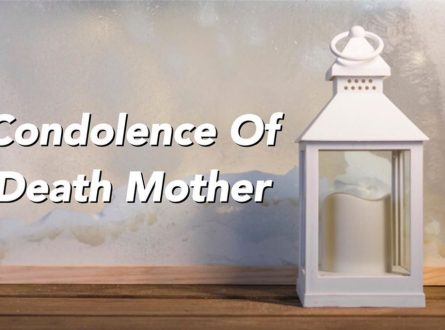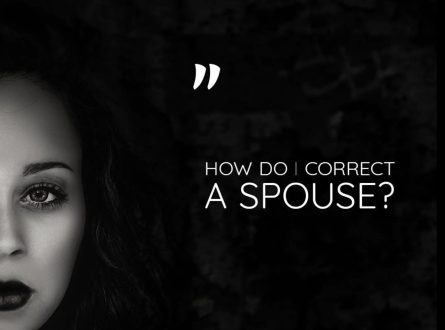Getting married is often seen as one of the happiest moments in life. The wedding day is full of joy, excitement, and love. But as many couples soon realize, the real work begins after the wedding. Saying “I do” is the easy part — staying happily married, year after year, is where the true challenge lies.
A strong marriage takes more than just love. It requires attention, compromise, patience, and consistent effort from both partners. Over time, if these things are missing, one or both partners can begin to feel tired, disconnected, or even hopeless. It’s not usually something that happens overnight. It builds slowly, and without realizing it, you may find your partner withdrawing from the relationship.
Let’s look at some common signs that your spouse may be emotionally tired and silently pulling away — and what you can do about it.
Signs That Your Spouse May Be Emotionally Tired
1. Communication Starts to Fade
One of the first things to go in a struggling relationship is open and honest communication. Conversations become shorter, less meaningful, or even non-existent. Your spouse might seem uninterested in sharing their day or asking about yours. When someone stops talking, it often means they’ve stopped feeling heard or valued.
2. Frequent Misunderstandings and Fights
When couples stop connecting emotionally, even simple conversations can turn into arguments. Every little thing becomes a reason to disagree, and there’s tension where there used to be peace. You may find yourselves constantly on edge around each other.
3. Personal Connection Disappears
You may still talk about daily responsibilities like paying bills or taking care of the kids, but there’s no longer any talk about your feelings, dreams, or each other. You feel like roommates — not partners.
4. Int1macy Feels Like a Chore
Physical closeness starts to feel forced or routine. The passion that once existed seems to have faded. Instead of being a way to connect, int1macy may now feel like an obligation for one or both of you.
5. Lack of Empathy or Concern
When your spouse stops showing concern when you’re sick, sad, or stressed, it may be a sign that they are emotionally drained. Their emotional tank may be empty, especially if they’ve tried for a long time to fix things and felt ignored.
6. No More Shared Plans or Dreams
You might notice that your spouse no longer includes you in future plans. They may stop talking about shared goals, trips, or even weekend plans. This is often a sign that they’re slowly giving up on the relationship.
7. They Stop Trying
Perhaps the most painful sign is when your partner stops putting any effort into the marriage. The small things they used to do — thoughtful messages, surprise gestures, caring words — are gone. It feels like they’ve checked out emotionally.
What Can You Do When Your Spouse Feels Emotionally Done?
First, it’s important to be honest with yourself. Ask: How did we get here?
Often, we don’t notice the little ways we’ve stopped showing up in the relationship. Maybe your partner has been trying to tell you they needed more time, attention, or affection, and you didn’t fully hear them. Or perhaps life got busy and you both just drifted apart without meaning to.
Here’s how to begin turning things around:
1. Look Back with Honesty
Think back to the early days of your relationship. What made your spouse feel loved? What were they always asking for that maybe you didn’t take seriously at the time? Whether it was quality time, appreciation, support, or simply listening, try to identify it.
2. Start Rebuilding with Small Steps
Once you understand what’s been missing, begin to bring it back — not with pressure or guilt, but with sincerity. Show your spouse that you care by being more present, listening without judgment, and making an effort to connect emotionally.
3. Be Patient and Stay Committed
If your partner is emotionally tired, they may not respond right away. That doesn’t mean your effort is wasted. It may take time for them to trust your intentions again. Stay consistent. Real love is patient, and rebuilding trust is a process.
4. Don’t Be Afraid to Ask for Help
Sometimes, even with your best efforts, you may need outside help. A marriage counselor or relationship coach can help both of you communicate better, understand each other more deeply, and find new ways to reconnect. Seeking help is not a sign of failure — it’s a sign of maturity and care.
Why You Should Act Now
Unfortunately, if things continue to decline without action, it may become harder — or even impossible — to repair the relationship. Some couples reach a point where one person emotionally checks out and never returns. But that doesn’t have to be your story.
If you still love your spouse and want the marriage to work, this is the time to take it seriously. A good marriage doesn’t just happen; it is built, day by day, with kindness, effort, and understanding.
Final Thoughts
Marriage is not always easy. There will be seasons of joy and seasons of challenge. But when both partners are willing to try, to listen, to grow, and to love each other through the hard times, the bond becomes even stronger.
Don’t wait until it’s too late. If you see the signs that your spouse is emotionally tired, start now. Reignite the connection, seek support if needed, and most of all — show that your love is still there, willing to grow.
You can write a new chapter in your marriage. And it starts with one honest step forward.


















